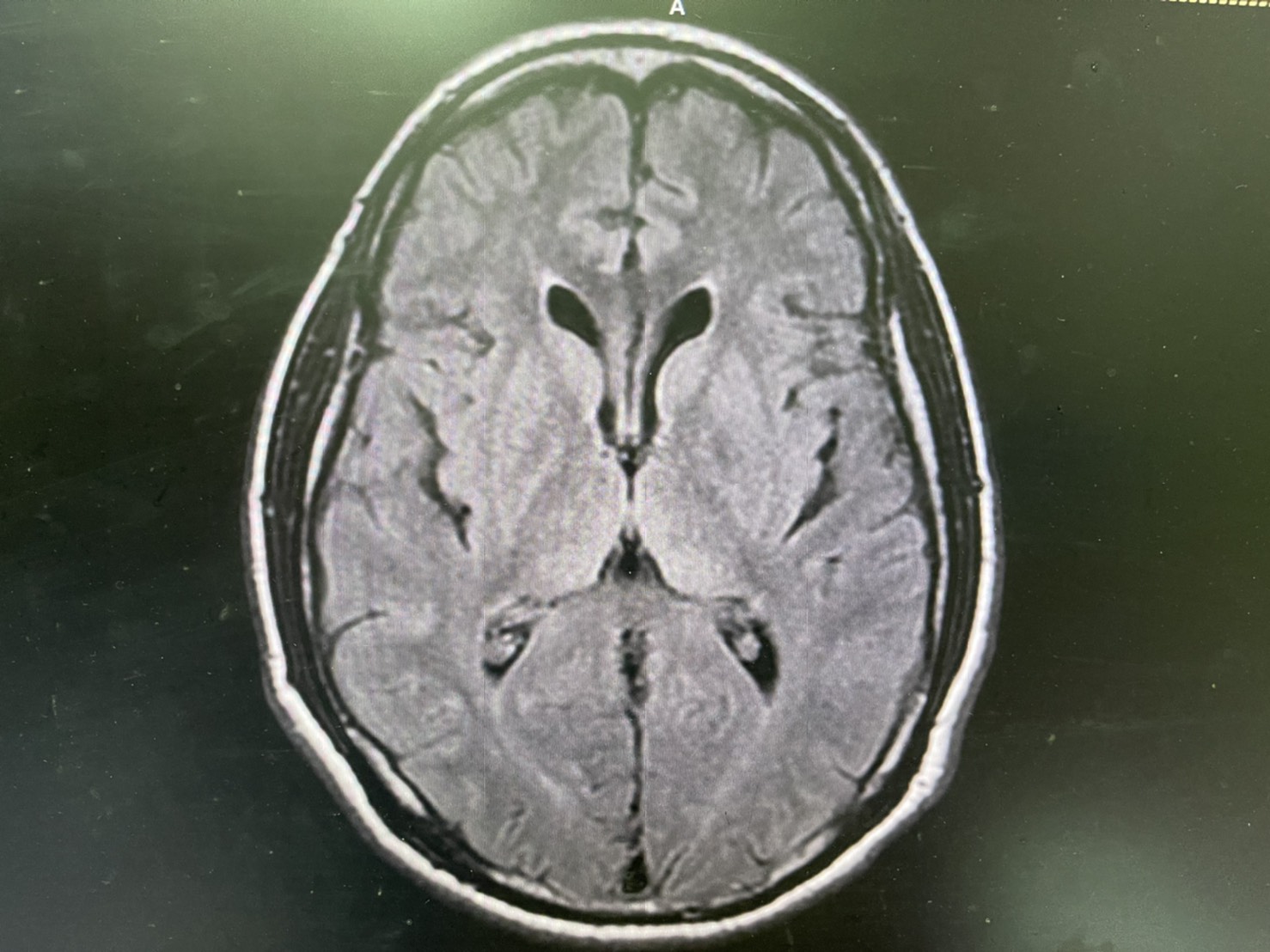Category: Choreas (Non-Huntington's Disease)
Objective: To report a case of post anoxic chorea which is considered as a rare complication of post cardiac arrest.
Background: Neurologic complication is a common consequence after cardiac arrest and it affects long term prognosis. Movement disorder is also one of the post anoxic neurologic complication. Commonly reported post anoxic movement disorder is myoclonus but chorea is rarely reported.
Method: Case report. Describing clinical features and Magnetic Resonance Imaging of patient’s brain.
Results: A sixty six years old man with a history of intermittent chest pain for two days was admitted to the hospital due to cardiac arrest. He had been unconsciousness for 10 minutes and then the cardiopulmonary resuscitation was done for 26 minutes. After that, there was a return of spontaneous circulation. He was diagnosed with acute coronary syndrome and then the targeted temperature management was done. Four days after the event, the patient was awake but he also developed generalized flow-liked abnormal movement. Physical examination showed generalized chorea involving his mouth, head and all extremities. The Magnetic Resonance Imaging of brain result revealed T2 hyper-intense lesions involving bilateral basal ganglia (Figure 1). He was diagnosed with acute post anoxic chorea and then was treated with two milligrams of haloperidol. The chorea was resolved in a few days after starting the treatment.
Conclusion: When encountering a patient who presents with acute generalized chorea, post anoxic brain injury should be in the differential diagnostic list. Magnetic Resonance Imaging of the brain is helpful in confirming the diagnosis.
References: Venkatesan A, Frucht S. Movement Disorders after Resuscitation from Cardiac Arrest. Neurol Clin. 2006;24:123–132.
To cite this abstract in AMA style:
C. Wantaneeyawong, K. Thiankhaw. Post anoxic chorea: a rare complication after anoxic brain injury [abstract]. Mov Disord. 2022; 37 (suppl 2). https://www.mdsabstracts.org/abstract/post-anoxic-chorea-a-rare-complication-after-anoxic-brain-injury/. Accessed July 18, 2025.« Back to 2022 International Congress
MDS Abstracts - https://www.mdsabstracts.org/abstract/post-anoxic-chorea-a-rare-complication-after-anoxic-brain-injury/

